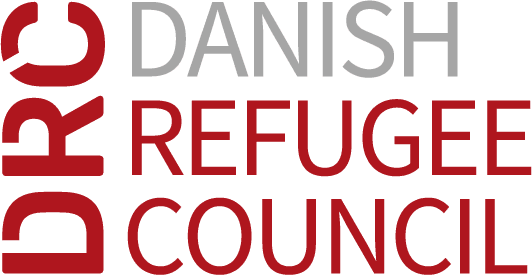

Diaspora toolkit: Where can you find relevant humanitarian data and information?
15 December 2023
This tool provides you with an overview of a few useful websites and key resources where you can find useful information, including short and concise briefings for each country and crisis, Humanitarian Needs Overviews, Humanitarian Response Plans, data sets and potential scenarios for how crises can develop.
Why this DEMAC Toolkit?
The DEMAC toolkit, with 5 pocket guides, intends to offer practical guidance to support diaspora organizations in their humanitarian response and enhance coordination with diaspora and the humanitarian institutional system.
The toolkit is informed by DEMAC lessons learnt, consultations and good practices on diaspora humanitarianism. It provides guidance for diaspora responders and sets the framework for increasing understanding, knowledge and capacity in humanitarian response.
The toolkit does not intend to provide a binding, predetermined list of interventions or types of activities that may or may not be implemented, as this is dependent on the specific context and would appear overly prescriptive.
We encourage adaptation of this resource to your local context.
With this toolkit we intend to offer practical guidance to support diaspora organizations in their humanitarian response.
WHERE TO FIND RELEVANT HUMANITARIAN DATA AND INFORMATION?
Humanitarian Response
The Humanitarian Response website centralizes key reports and information products from humanitarian actors per country in one platform. It is an easily accessible website available in multiple languages. You can select the country you are interested in and access the latest humanitarian response plan, key contacts and cluster information, needs overview, information per sector and useful links.
UN OCHA
The United Nations Office for the Coordination of Humanitarian Affairs (OCHA) aims to strengthen the international response to complex emergencies and natural disasters. OCHA is the part of the United Nations Secretariat responsible for bringing together humanitarian actors to ensure a coherent response to emergencies. OCHA also ensures there is a framework within which each actor can contribute to the overall response effort.
OCHA’s mission is to
- Mobilize and coordinate effective and principled humanitarian action in partnership with national and international actors in order to alleviate human suffering in disasters and emergencies.
- Advocate for the rights of people in need.
- Promote preparedness and prevention.
- Facilitate sustainable solutions.
- On their website, you can find the relevant documents for each country response, including latest updates and reports.
ReliefWeb
Refliefweb is an official humanitarian information service provided by the United Nations Office for the Coordination of Humanitarian Affairs (OCHA) sharing key content, reports, maps and infographics from trusted sources so that humanitarian workers can access a range of latest humanitarian information from anywhere, at any time. This includes jobs and training opportunities, but also country contact focal points for humanitarian clusters and working groups, meeting minutes and briefings.
ACAPS
ACAPS is an independent information provider working on evidence-based humanitarian needs analysis and assessment. They are not affiliated with the UN or any other organization. Their analysis aims to help humanitarian workers, influencers, fundraisers, and donors make better-informed decisions, by providing high-quality, independent, and multisectoral analysis to enable crisis responders to better understand and subsequently address the needs of the affected populations. You can find more information here, and here.
Humanitarian InSight
Humanitarian InSight empowers country operations and the coordination structures such as the humanitarian clusters to access interactive online presentations regarding their needs, planning and monitoring information, while simultaneously providing a reference for globally aggregated data used in corporate products such as the Global Humanitarian Overview (GHO).
Country-Based Pooled Funds
Country-Based Pooled Funds (CBPFs) make funding directly available to humanitarian partners operating in countries affected by natural disasters and armed conflict so they can deliver timely and effective life-saving assistance. They are managed by UN OCHA and are available to registered NGOs. More information can be found here and here.
Financial Tracking Service
The Financial Tracking Service (FTS) is a centralized source of continuously updated information on humanitarian funding flows. Government donors, UN-administered funds, UN agencies, NGOs and other humanitarian actors exchange data and information with FTS in order to provide an updated picture of funding flows into existing humanitarian operations; information on funding per sectors and existing funding gaps; as well as visibility on who is funding what in which humanitarian operation.
Humanitarian Data Exchange
The Humanitarian Data Exchange (HDX) is an open platform for sharing data in various languages, across crises and organizations. The goal of HDX is to make humanitarian data easy to find and use for analysis. Their growing collection of datasets has been accessed by users in over 250 countries and territories.
Diaspora toolkit: Where to find relevant humanitarian data and information
That could also interest you

Diaspora Toolkit: 5 Pocket Guides for Diaspora Organizations
Learn how to better understand humanitarian concepts and the way of working with humanitarian actors.

Diaspora Toolkit: 5 Pocket Guides for Institutional Humanitarian Actors
Learn how to better understand diasporas and their way of working and collaborating.

What can we learn from diasporas? Good practices in humanitarian response
Harnessing the good to become better together in delivering life-saving aid!












